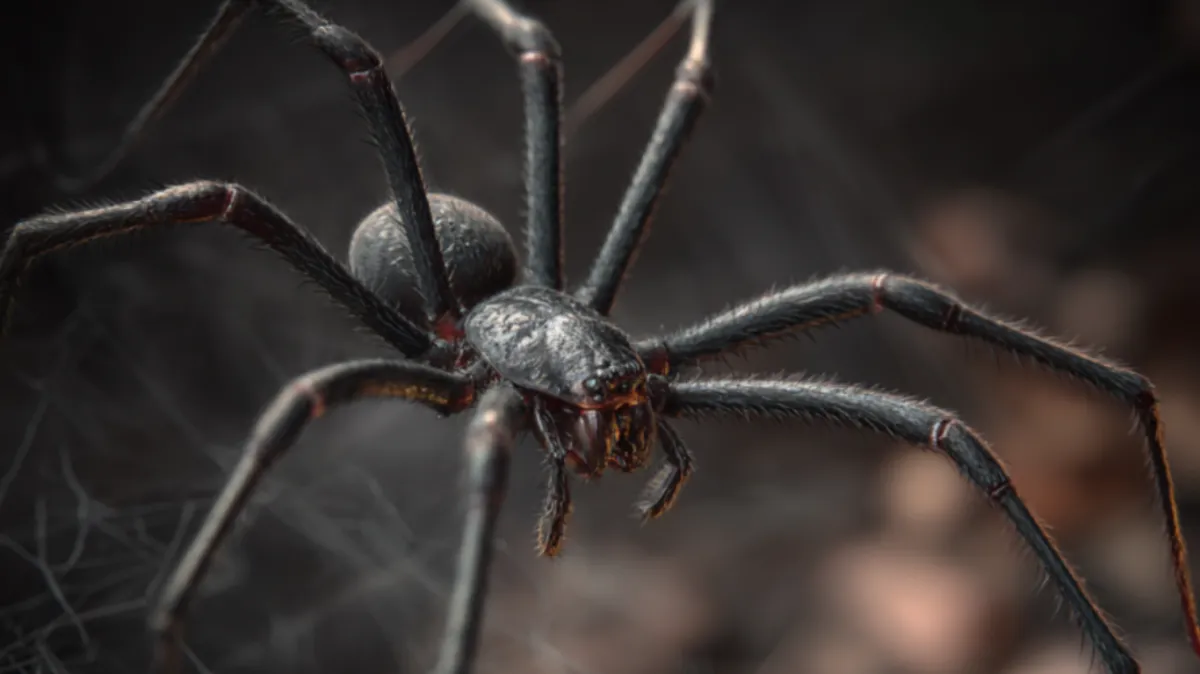
Spider Season: Why They're Showing Up Now and What to Do
Why Are Spiders Showing Up Now?
October marks the beginning of prime spider season—and no, you're not imagining it. You really are seeing more spiders indoors during this time of year. But why?
The answer lies in two main seasonal behaviors:
1. Seeking warmth and shelter
2. Searching for mates
1. Fall Temperatures Drive Spiders Indoors
As the temperature drops outdoors, spiders begin migrating to warmer, drier environments—and your home offers everything they need to survive:
Warmth: Homes provide a stable temperature that helps spiders stay active and reproduce.
Dry spaces: Spiders avoid moisture buildup from fall rains and prefer basements, attics, garages, and wall voids.
Undisturbed areas: They love spaces with minimal movement—think storage boxes, crawl spaces, and high corners.
2. Mating Season Increases Visibility
Fall is the mating season for many spider species, especially males. These males leave their webs and begin wandering in search of female partners—resulting in more visible activity inside your home.
You’ll often see them:
Crawling across floors or walls
Appearing in sinks or bathtubs (trying to escape after falling in)
Moving near baseboards and under furniture
3. Common Fall Spider Behaviors to Watch For
Here’s what you might notice more often during October:
Increased indoor sightings:
Most spiders have likely been inside your home for months—fall just makes them more active and noticeable.Webs in windows, corners, and garages:
These are strategic spots for catching flying insects. Windows attract bugs, and quiet corners allow webs to stay undisturbed.
Harmless vs. Harmful: Knowing What You’re Seeing
Spiders are a common sight in fall—but not all spiders deserve the same level of concern. Some are completely harmless and even beneficial, helping reduce populations of other nuisance pests like flies and mosquitoes. However, others can pose health risks and should be approached with caution.
To help you identify what's lurking in your home this fall, here’s a guide to some of the most common spiders in Granite Bay, CA, along with tips on when to stay calm—and when to call in the pros.
1. Harmless Spiders (Often Misunderstood Allies)
These spiders are not aggressive and rarely bite. They're more interested in capturing insects than interacting with humans.
Cellar Spiders (aka Daddy Long Legs)
Appearance: Small body, long spindly legs.
Behavior: Often found in basements, crawl spaces, and ceilings.
Risk Level: Completely harmless to humans.
Fun Fact: Despite myths, their venom is not dangerous, and they rarely bite.
Orb-Weaver Spiders
Appearance: Round abdomen; colorful patterns depending on species.
Behavior: Builds large, symmetrical webs outdoors, often in gardens or between fences and trees.
Risk Level: Harmless, non-aggressive.
Bonus: They’re great for natural pest control!
Wolf Spiders
Appearance: Large, hairy, and fast-moving. Can grow up to 1.5 inches.
Behavior: Hunts prey on the ground rather than building webs. May wander indoors.
Risk Level: Not dangerous, but can look intimidating.
Tip: If startled, they may run, but they rarely bite unless provoked.
2. Harmful Spiders (Handle with Care)
While most spiders avoid humans, some species carry venom that can be medically significant. These are rare, but important to identify.
Black Widow Spiders
Appearance: Shiny black body with a distinct red hourglass marking on the underside of the abdomen.
Behavior: Prefers quiet, sheltered areas like sheds, garages, and woodpiles.
Risk Level: Dangerous. A bite can cause muscle pain, cramping, and other symptoms requiring medical attention.
What to Do: Never attempt to handle or remove one yourself—contact a professional.
3. What You Can Do: Response Tips
See a spider? Don’t panic. Observe from a distance if possible.
Use a clear cup and paper to trap harmless spiders and release them outdoors.
Suspect a harmful species? Photograph it safely (if you can) and contact Ace Ventura Pest & Wildlife Control for expert identification and safe removal.
Regular cleaning and decluttering of dark corners, garages, and outdoor storage areas can significantly reduce spider habitats.
Seal cracks and crevices around doors and windows to minimize entry points.
Preventing Spiders from Entering Your Home
As fall sets in and temperatures drop, preventing spiders from turning your home into their winter retreat is key. With a few proactive steps, you can dramatically reduce the likelihood of eight-legged visitors making themselves comfortable indoors.
Here are five essential strategies to keep spiders out of your living spaces:
1. Seal Up Entry Points
Spiders are sneaky—they can fit through the tiniest of cracks and crevices. Start by inspecting your home’s exterior and interior for potential entryways.
Inspect around doors, windows, vents, and utility entry points.
Seal gaps using silicone caulk, weather stripping, or foam sealant.
Pay attention to the foundation, baseboards, and spaces under doors.
2. Declutter Storage Areas
Spiders love dark, undisturbed places—making your garage, attic, and basement prime real estate.
Organize storage boxes and avoid stacking them on the floor.
Use plastic bins instead of cardboard, which spiders love to hide in.
Dust and sweep regularly to disrupt any hidden cobwebs or egg sacs.
3. Control Indoor and Outdoor Lighting
Spiders aren't directly attracted to lights, but their prey is—which means more food, and more reason to stick around.
Switch to yellow or sodium vapor bulbs outdoors—they attract fewer insects.
Turn off unnecessary lights at night, especially near entryways.
Keep curtains closed during evening hours to avoid indoor light attracting insects through windows.
4. Eliminate Other Insects (Spider Food)
If your home has a bug problem, spiders will follow. Cutting off their food supply is one of the best deterrents.
Keep countertops clean, especially from crumbs and sugary spills.
Seal food in airtight containers.
Fix leaky faucets and eliminate standing water, which can attract insects.
Take out the trash regularly and store bins away from entrances.
Spiders in fall are a nuisance—but they don’t have to take over your home. With a little know-how and the support of Ace Ventura Pest & Wildlife Control, you can enjoy a cozy, spider-free season.Schedule your fall spider inspection today, and let’s keep the creepy crawlers outside where they belong.